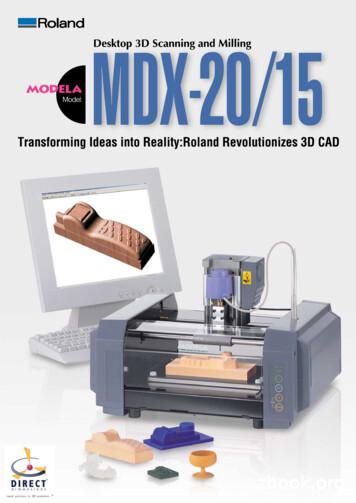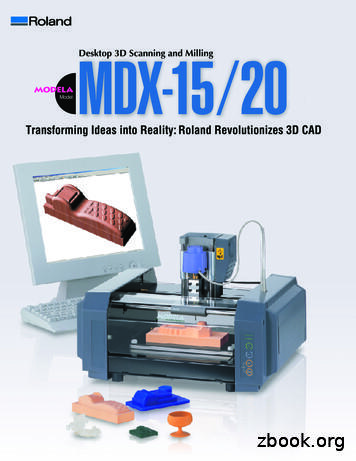MSc Data Science - MDX
Programme SpecificationMSc Data Science1. Programme titleMSc Data Science2. Awarding institutionMiddlesex University3. Teaching institutionMiddlesex University4. Details of accreditation byprofessional/statutory/regulatory body5. Final qualificationMSc Data Science6. Year of validation7. Language of studyEnglish8. Mode of studyFull-Time/Part-Time
9. Criteria for admission to the programme We normally require a 2:2 honours degree or above incomputer science or IT Candidates with other degrees are welcome to apply providedthey can demonstrate appropriate levels of experience withinthe computing sector Candidates without formal qualifications need to demonstraterelevant work experience within the computing sector and theability to study at postgraduate level.UK/EU and international students are eligible to apply for thiscourse.If you have relevant qualifications or work experience, academiccredit may be awarded towards your Middlesex Universityprogramme of study. For further information please visit ourAccreditation of Prior Learning page10. Aims of the programmeData-Science and Data-Analytics are increasingly identified as keyindustrial activities; this is reflected, in human resourcing terms,within recently-minted job specifications such as “Data Scientist”,“Big Data Analyst” etc. University postgraduate course offerings havebegun to reflect this industrial demand with a sudden expansion(especially within the last year) in courses catering to the DataScientist job specification.The Data-Science/Data-Analytics distinction is deployed ratherloosely in the corporate sector as a whole, but Data Science, wherespecified, tends to lean more on machine-learning, regression andpattern recognition than Data Analytics per se; big data (iealgorithmic scaling) and visualisation are also explicit foci of DataScience. Data Analytics tends to be more ungrounded, by contrast;there is more of an emphasis on exploratory statistics than onmodelling – data inspection, cleaning and transformation areparticularly emphasised. Both are equally concerned with datamining and supporting decision making. Middlesex’s MSc offering inData Science therefore also covers Data Analytics.
The curriculum for the MSc in Data Science is designed to offer thosepostgraduates with a familiarity in maths, science or computing anopportunity to develop a key set of skills for future employment in away that builds on their existing knowledge and skill base. We thusanticipate that, on completing the course, postgraduates will be in aposition to fulfill the requirements of the position of Data Scientist,which is rapidly becoming a required post for any company in thecorporate sector that wishes to take full advantage of the data thatthey collect. The Middlesex Data Science M.Sc. focuses on theintertwining areas of machine learning, visual analytics and datagovernance, with the aim being to strike a balance betweentheoretical underpinnings, practical hands-on experience, andacquisition of industrially-relevant languages and packages.Students will also be exposed to cutting-edge contemporary researchactivity within data science that will equip research-oriented studentswith the potential to pursue a research-based career, and, inparticular, further PhD study.11. Programme outcomesA. Knowledge andunderstandingOn completion of thisprogramme the successfulstudent will have knowledgeand understanding of:1. Appraise the ideas andconcepts underlying aselected set of advancedtopics in data science2. Apply appropriate datascience techniques to agiven problem3. Analyse, reason aboutand implement complexdata science systems.Teaching/learning methodsStudents gain knowledge andunderstanding through acombination of traditional lecturedelivery, small group discussions,small group and individualexercises, lab sessions and theindividual project. Throughout theirstudies students are encouraged toundertake independent study bothto supplement and consolidatewhat is being learned, and tobroaden their individual knowledgeand understanding of the subject.Critical evaluation and selection oftechniques and solutions engage
4. Appraise theprofessional, legal andethical framework withinwhich a data scienceprofessional mustoperatethe students in relating theory topractice.B. Cognitive (thinking)skillsTeaching/learning methodsOn completion of thisprogramme the successfulstudent will be able to:1. Plan and applyappropriate techniquesfor the solution ofproblems in data science2. Utilise a range ofmodelling andabstraction techniquesfor the specification anddesign of data sciencesystems3. Critically evaluate arange of data sciencemethodologies4. Plan and execute achallenging andsubstantial data scienceproject by application ofAssessment methodsStudents’ computing-relatedcognitive abilities (A1 through A4)are assessed by a combination ofcoursework, in- class tests and anindividual dissertation. Courseworkmay comprise group and individualassignments, presentations andviva-voce examination.Students learn cognitive skillsthrough the teaching and learningstrategyindicated in Section A. Theseabilities are nurtured in particularby self-directed learning, smallgroup teaching and discussions,small group and individualexercises, laboratory sessionsand the group project. Seminarsessions provide an opportunityto address questions, queriesand problems.Assessment methodsStudents’ cognitive skills (B1through B4) are assessed bycoursework and an individualdissertation. Coursework maycomprise group and individualassignments, tests, presentationsand viva-voce examination.
appropriate researchmethodsC. Practical skillsTeaching/learning methodsOn completion of theprogramme the successfulstudent will be able to:Students learn practical skillsthrough the teaching and learningstrategy outlined above. Althoughnot all the skills are explicitly taught,they are nurtured and developedthroughout the programme, whichis structured and delivered in sucha way as to promote this process.1. Learn effectively andindependently to acquirenew knowledge and skillsfor the purpose ofcontinuing professionaldevelopment2. Analyse complexproblems systematicallyand implement effectivesolutions3. Communicate effectivelyin writing, verbally and bypresentation4. Effectively manage timeand other resources5. Reflect critically on her,or his, own work and thatof colleagues6. Display effective teamworking skills to make apositive contribution, as amember or leader, to thework of a groupAssessment methodsStudents’ practical skills (C1through C6) are assessed bycoursework and an individualdissertation. Coursework maycomprise group and individualassignments, tests, presentationsand viva-voce examination.
12. Programme structure (levels, modules, credits andprogression requirements)12. 1 Overall structure of the programmeCSD4050Modelling, Regression andMachine LearningCSD4060CSD4070CSD4080Visual Data AnalysisApplied Data Analytics Tools, Practical Big DataHandling, Cloud DistributionLegal, Ethical & Securityaspects of Data ManagementCSD4090Individual Data ScienceProjectThe programme is available in full-time and part-time mode in theUK and Malta. The programme comprises four 30 credit taughtmodules and a 60 credit postgraduate project module. All modulesare compulsory. The programme commences in the autumn term(October). Full-time students study the four 30-credit modules inparallel over a period of 24 weeks. They then undertake the projectmodule (60 credits) over the spring and summer terms to completethe programme in approximately one calendar year. Part-timestudents typically study two 30-credit modules in their first academicyear of study followed by two further 30-credit modules. It isacceptable within the regulations of the learning framework for parttime students to study 30 credits (i.e., one module) in a givenacademic year provided the overall programme is completed withinthe specified timescale for part-time registration.Details of each module can be found in the Programme Handbook.Students must successfully complete all the modules of thetaught part of the programme before they can register for theProject Module.
12.2 Levels and modulesLevel 7COMPULSORYStudents must take allof the following:CSD4050 - Modelling,Regression andMachine LearningCSD4060 - VisualData AnalysisOPTIONALPROGRESSIONREQUIREMENTSStudents mustsuccessfully completeCSD4050, CSD4060,CSD4070 and CSD4080before progressing to theindividual project(CSD4090).CSD4070 – AppliedData Analytics - Tools,Practical Big DataHandling, CloudDistributionCSD4080 - Legal,Ethical & Securityaspects of DataManagementCSD4090 - IndividualData Science Project12.3 Non-compensatable modules (note statement in 12.2regarding FHEQ levels)Module levelModule code
Level 7CSD409013. Curriculum mapSee attached.14. Information about assessment regulations15. Placement opportunities, requirements and support (ifapplicable)N/A16. Future careers (if applicable)Successful students will be equipped with the potential to pursueresearch-based careers in data science, including the possibility ofprogressing to PhD programmes such as that offered by MiddlesexThe job specification “Data Scientist” is now in common currency andreflective of industrial demand; the course is designed to cater to theData Scientist job specification.17. Particular support for learning (if applicable)N/A
18. JACS code (or other relevant codingsystem)I100, I460 andI21019. Relevant QAA subject benchmarkgroup(s)20. Reference points21. Other informationPlease note programme specifications provide a concise summary of the mainfeatures of the programme and the learning outcomes that a typical studentmight reasonably be expected to achieve if s/he takes full advantage of thelearning opportunities that are provided. More detailed information about theprogramme can be found in the rest of your programme handbook and theuniversity regulations.
Appendix 2: Curriculum MapCurriculum map for [title of Programme]This section shows the highest level at which programme outcomes are to be achieved by all graduates, andmaps programme learning outcomes against the modules in which they are assessed.Programme learning outcomesKnowledge and understandingA1Appraise the ideas and concepts underlying a selected set of advanced topics in data scienceA2Apply appropriate data science techniques to a given problemA3Analyse, reason about and implement complex data science systems.A4Appraise the professional, legal and ethical framework within which a data science professional must operateCognitive skillsB1Plan and apply appropriate techniques for the solution of problems in data scienceB2Utilise a range of modelling and abstraction techniques for the specification and design of data science systemsB3Critically evaluate a range of data science methodologiesB4Plan and execute a challenging and substantial data science project by application of appropriate research methodsPractical skillsC1Learn effectively and independently to acquire new knowledge and skills for the purpose of continuing professionaldevelopmentC2Analyse complex problems systematically and implement effective solutionsC3Communicate effectively in writing, verbally and by presentationC4Effectively manage time and other resourcesC5Reflect critically on her, or his, own work and that of colleaguesC6Display effective team working skills to make a positive contribution, as a member or leader, to the work ofa groupProgramme outcomesA1A2A3A4B1B2B3B4C1C2C3C4C5C6777777Highest level achieved by all graduates77777777
Programme outcomesModuleCodeby LevelA1A2A3Modelling, Regressionand Machine LearningCSD4050 Visual Data AnalysisCSD4060 Applied Data Analytics Tools, Practical Big DataHandling, CloudDistributionLegal, Ethical & Securityaspects of DataManagementIndividual Data ScienceProjectCSD4070Module TitleB1B2B3 CSD4080CSD4090 A4B4C3C4C5C6 C2 C1
Data-Science and Data-Analytics are increasingly identified as key industrial activities; this is reflected, in human resourcing terms, . Details of each module can be found in the Programme Handbook. Students must successfully complete all the modules of the taught part of the p
2022 Pricing 2022 MDX TRIM LEVELS (Configuration Options) MDX Starting at: 46,9001 MDX with Technology Package Starting at: 51,6001 MDX SH-AWD Starting at: 48,9001 MDX SH-AWD with Technology Package Starting at: 53,6001 MDX SH-AWD with A-Spec Package Starting at: 57,1001 MDX SH-AWD with Advance Package Starti
The MSc(Eng), MSc(CompSc) and MSc(ECom&IComp) curricula are offered in part -time and full- time modes. MSc 1 Admission requirements . To be eligible for admission to the curriculum leading to the degree of MSc(Eng) / MSc(CompSc) / MSc(ECom&IComp), a candidate shall: (a) comply with the General Regulations;
roland MDX Product Comparison 2 TeChNoloGy BRief SuBTrACTive rAPiD ProToTyPing Model Price Build size Materials Options Notes MDX-15 3,145 6" x 4" x 2.4" Foams, plastics, wood Includes probe scanner for 3D scanning MDX-20 4,696 8" x 6" x 2.4" Foams, plastics, wood Includes probe scanner for 3D scanning MDX-40A 7,995 12" x 12" x 4.1 with 4th .
MSc Drilling and Well Engineering* 11 MSc Oil and Gas Engineering* 11 MSc Petroleum Production Engineering* 11 MSc Solar Energy Systems** 11 * Pre- masters in Engineering (Oil and Gas): ILS005 ILSC PG1006 Maths for Engineering and Sciences PG 1008 Introduction to Oil and Gas ** Pre-masters in Enginee
MSc Civil Engineering Structures (T) MSc Civil Engineering Structures (Nuclear Power Plants(T) MSc Analysis and Design of Structures for Hazards (T) MSc Analysis and Design of Structures for Fire, Blast and Earthquakes. MSc Professional Engineering (Civil Engineering) (T) MSc Construction Management 1 year 2 - 3 years 1 year 2 - 3 years 1 year
The MDX-20/15 is ideal for reverse engineering. Before beginning your designs, you can use the MDX-20/15 to scan and digitize data from an existing part or mold for your CAD drawings. Due to the precision of its Roland Active Piezo Sensor (R.A.P.S.) technology, the MDX scans a wide range of objects, including soft objects like
ProLight ProTrak Roland EGX-300 Roland MDX-3,15,20 RolandMDX-40 Roland MDX-500,650 Roland MDX-650ATC Roland Saic Selca Servo ServoATC Sherline Sharnoa-Tiger4 SherlineMach3 Sherline-EMC-Inch Sherline-EMC-MM ShopBot ShopBotGCode Siemens SiemensISO Simple SuperCAM Taig TechnoIsel TechnoI
Roland's MDX-15 and MDX-20 puts you in control with the power of 3D scanning and milling on your desktop. Easy-to-use and compatible with many popular 3D CAD software programs, the MDX-15/20 is an affordable, all-in-one scanning and milling device perfect for a























